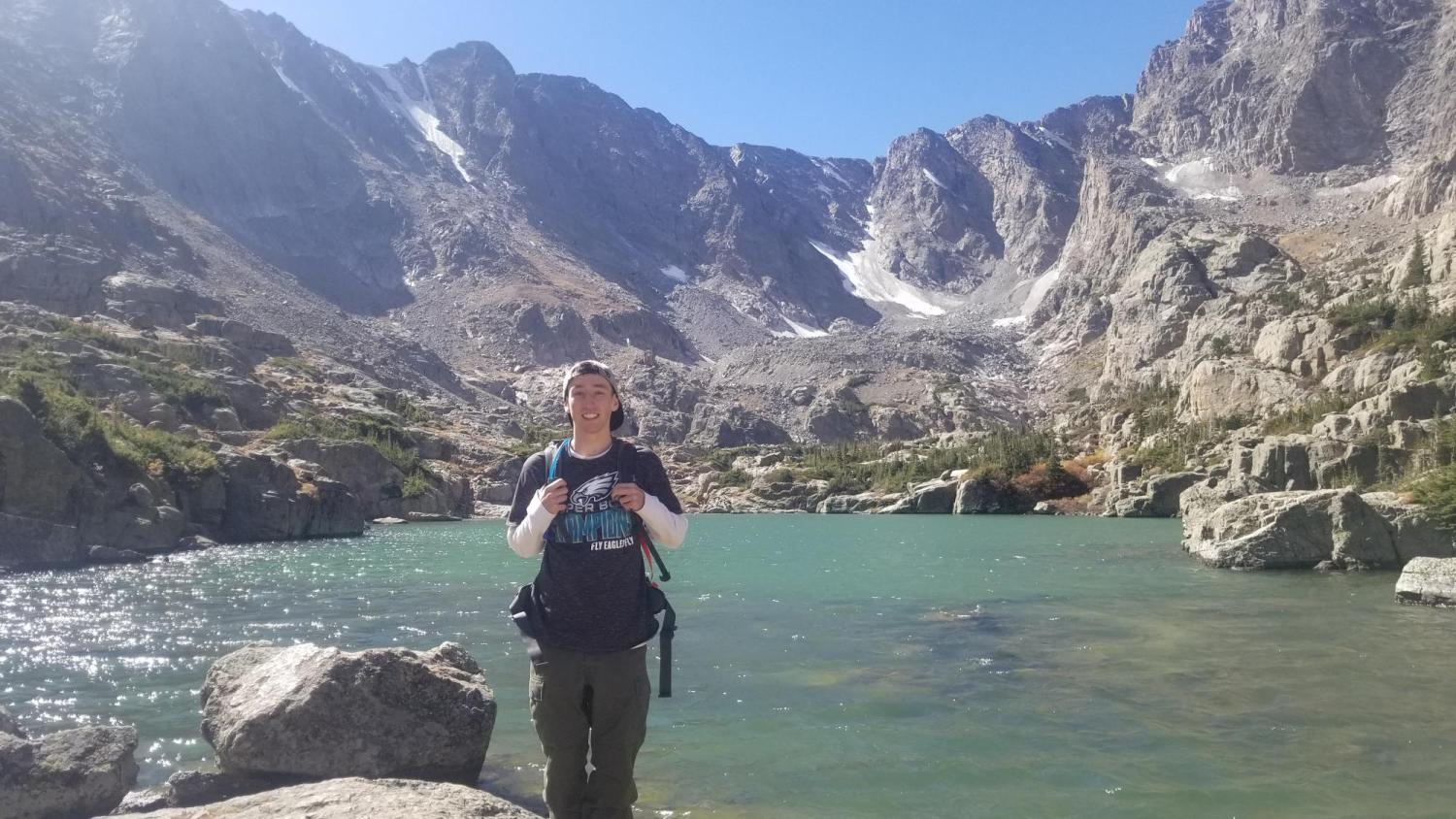From studying to sobriety, Sean Okonsky found support and success as a chemical engineering student

Graduating senior Sean Okonsky is one of almost 90 Department of Chemical and Biological Engineering students set to walk the graduation stage at the end of the semester, ready to face the challenges of the next stages of their careers.
But the road to graduation isn’t always an easy one. Okonsky faced the usual academic challenges of a chemical engineering major — often intimidating on their own — but also overcame the obstacles of a uniquely personal struggle through depression and substance use.
As he was considering his options for higher education, it was the world-class academic and outdoor opportunities that drew Okonsky to Boulder.
“CU Boulder has an excellent chemical engineering program along with a beautiful campus,” Okonsky said. “The snowboarding, skateboarding and hiking scene in Colorado was unlike anything there was back home in Pennsylvania. It was a little more expensive to come to CU Boulder being an out-of-state student, but I am so happy that I decided to come to school here. It was worth every penny.”
Okonsky excelled in chemistry and biology while in high school, and was fascinated by how the fields enable us to understand life on a small scale. That fascination eventually led him down the engineering path.
“I liked the concept of engineering and how it uses math and science to solve real-life problems, so a combination of the two was perfect for me,” he said.
During his time at the Department of Chemical and Biological Engineering, Okonsky participated in research on heterogeneous catalysis — seeking ways to improve the efficiency of energy production and other processes. He credits the additional time and resources of the faculty here with helping him achieve success as a student.
“The instructors and professors are there to help you learn as much as you want,” he said. “There are numerous office hours every week which provide extra support in addition to the classes and homework. The screencasts that are provided for some of the classes are extremely helpful, and the clicker questions make class more fun.”
Okonsky mentioned a few instructors in particular who had a big impact on him as a budding chemical engineer.
“Will Medlin allowed me to work in his lab one summer through the SPUR program and that experience was what inspired me to apply to graduate school,” he said. “I had Janet DeGrazia for three different classes and I learned a lot from her! I really enjoyed the way John Falconer taught Thermodynamics by having his classes focused mostly on clicker questions and staying away from the traditional lecture style of teaching.”
One of the advantages of attending CU is the diversity of support programs available to students. When Okonsky decided to seek help for his depression and issues with drinking, he found support with the CU Collegiate Recovery Center.
“The CUCRC was hugely supportive to me while I was going through a tough time,” he said. “The support from the community there really helped me improve my academics and mental health.”
When his academics began to slip, Okonsky recognized he needed some assistance.
“My drug and alcohol use had gotten out of hand and it was affecting my academics, causing me to withdraw from classes and be put on academic probation,” he said. “I was also dealing with pretty severe depression at the time as well. The CUCRC provided me a place to connect with other students in recovery that were dealing with similar issues which helped make me feel not so alone.”
The program got Okonsky into peer support meetings, individual meetings with the program manager Sam Randall and provided sober social events and outings like skiing, hiking, football games, rock climbing, mountain biking and ice climbing.
“After achieving a year of sobriety, I moved into the CRC's core housing complex, which has been an amazing experience,” he said. “As a result of utilizing the resources available from the CRC, my academics have improved dramatically, and so has my mental health.”
“The support from the CUCRC is what has helped me thrive as a student at CU and I am so grateful for all that is has given me,” he said.
That support — and his determination — paid off. After graduation, he will attend Penn State University to pursue a PhD in chemical engineering. He plans on focusing his research on converting biomass and waste material into fuels and commodity chemicals.

